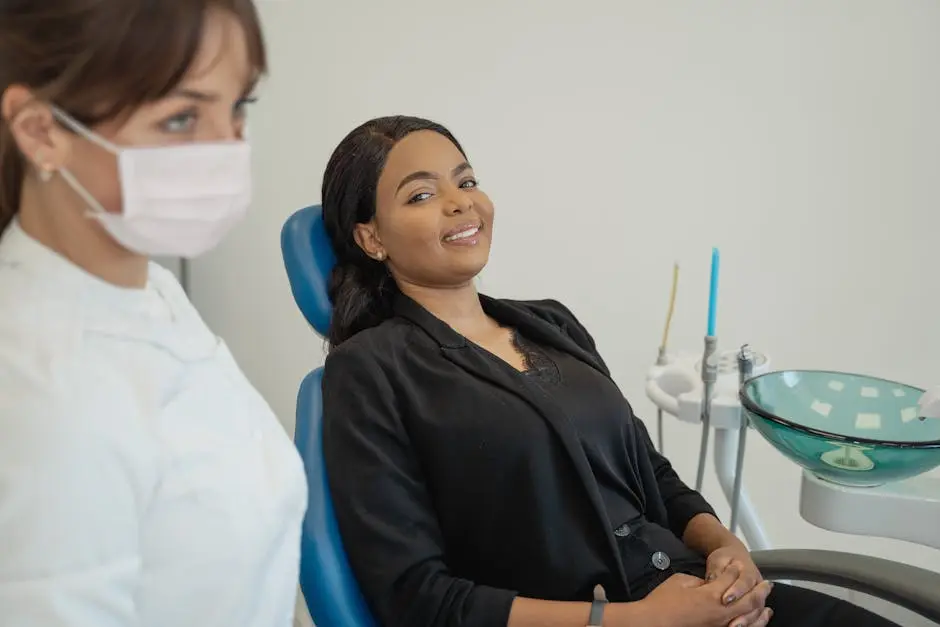Visiting your family dentistry expert regularly may seem like a chore, but it’s one of the best things you can do for your oral health. From early detection of potential issues to fostering a relationship with your dental provider, these appointments play a crucial role in maintaining your smile. Let’s explore the numerous benefits of making those visits a regular part of your family’s routine.
1. Early Detection of Dental Issues
Regular visits allow your dentist to spot problems before they escalate, saving you time, money, and discomfort. For instance, small cavities can be treated easily, preventing further decay or more extensive treatments. By going in for check-ups every six months, you are staying ahead of potential problems and safeguarding your family’s oral health.
Moreover, early detection isn’t just about cavities. Your dentist can identify signs of gum disease, oral cancers, and other serious conditions. A quick examination can lead to prompt action which, in many cases, can make the difference between a simple fix and a more complicated, invasive procedure. This proactive approach empowers you to take charge of your family’s dental health.
2. Preventive Care for Long-Term Health
Routine cleanings and examinations help maintain oral hygiene and prevent serious diseases. By removing plaque and tartar buildup, your dentist helps reduce the risk of cavities and periodontal disease, which can have systemic implications. In this way, regular dental care transforms into an investment for your future health.
Additionally, preventive care means educating your family about the importance of brushing, flossing, and correct dietary choices. Your dentist can explain the direct links between what you eat and how you take care of your teeth, making it easier to instill these habits in your children. Ultimately, the goal is not just a healthy smile today, but a lasting one for the years to come.
3. Establishing a Trusting Relationship
Regular appointments foster a bond between your family and the dentist, making visits more comfortable and less stressful. When your dentist knows your family, they can tailor their approach to each individual’s needs. Children, especially, benefit from seeing familiar faces, which can help them feel secure during dental visits.
This trust extends beyond just the mechanical care; it encompasses emotional support as well. When children, or even adults, feel at ease, they are more likely to communicate any fears or concerns. This open line of communication builds a healthy partnership, ensuring that everyone receives the best possible care throughout their dental journeys.
4. Improved Education on Oral Hygiene
Your dentist can provide personalized tips and strategies to enhance your family’s oral care routine. This isn’t a one-size-fits-all scenario; tailored advice helps drinkers of soda understand the impact of sugar, or teaches kids about the benefits of fluoride. Educational resources and discussions during visits demystify oral health, empowering families to make informed choices.
Furthermore, a well-informed family is less likely to overlook essential practices. For instance, by knowing how crucial it is to floss, your children might just start doing it regularly! The dentist serves not only as a caregiver but also as an educator, carrying the mission of promoting health education far beyond the clinic. Such insights often become a part of daily routines at home, creating healthy habits that last a lifetime.
5. Access to the Latest Treatments
Frequent visits mean you are always informed about new techniques and treatments available for your oral care. The field of dentistry is continually evolving, introducing innovative solutions that can make your experience smoother and more effective. From advancements in tooth whitening methods to state-of-the-art restorative techniques, your family dentist ensures you’re in the loop.
Knowing about the latest options means you can make better choices for your family. Perhaps your child needs braces, and there are modern alternatives that are less invasive and more comfortable. With regular visits, your dentist can discuss these options with you, helping you stay ahead of the curve and make the best decisions for long-term dental health.
6. Promotion of Overall Well-Being
Good oral health has been linked to overall physical health, reducing risks for various diseases. There’s growing evidence that poor dental health can contribute to chronic conditions such as diabetes and heart disease. By making routine dental visits a priority, you not only protect your smile but also fortify your overall health.
In this way, the relationship between your mouth and your body becomes clear. Dental check-ups aren’t solely about oral hygiene; they’re crucial checkpoints that can reveal larger health trends. By focusing on family dentistry, you can ensure your family’s health is in tandem with their smiles, promoting wellness in all aspects of life.
7. Creating Positive Dental Experiences for Children
Establishing early, positive experiences can help reduce anxiety around dental visits for your kids. Kids who grow up with regular visits likely develop a sense of security and understanding about dental care. The more they attend appointments, the more comfortable they become, viewing the dentist less as a stranger and more as a friendly ally in their health journey.
Encouraging your children to voice their thoughts during appointments also creates an open dialogue. This practice helps them to develop healthy communication skills, as they learn to express concerns or ask questions. When dental care is framed as a normal, positive part of their routine, it’s less daunting for them, creating citizens who prioritize their oral health as they grow.















